Related Research Articles

The Hong Kong New Wave is a film movement in Chinese-language Hong Kong cinema that emerged in the late 1970s and lasted through the early 2000s until the present time.

Jang Jin is a South Korean film director, theatre director, playwright, screenwriter, film producer, actor and TV personality.
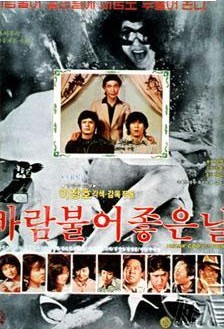
A Fine, Windy Day is a 1980 South Korean film written and directed by Lee Jang-ho.

Ryu Deok-hwan is a South Korean actor.

Kim-Jho Gwang-soo, also known as Peter Kim, is a South Korean film director, screenwriter, film producer and LGBT rights activist.
Min-ho is a Korean masculine given name. The meaning differs based on the hanja used to write each syllable of the name. There are 27 hanja with the reading "min" and 49 hanja with the reading "ho" on the South Korean government's official list of hanja which may be used in given names. Min-ho was the ninth-most popular name for South Korean baby boys in 1980.

Im Won-hee is a South Korean actor. Im was an alumnus of the legendary Daehak-ro theater troupe Mokhwa (Korean: 목화), starring in many of Jang Jin's stage plays. He made his film debut in Jang's black comedy The Happenings in 1998, and through the years has become one of the most versatile supporting actors in Korean cinema, with notable roles in Three... Extremes and Le Grand Chef. But Im is best known for his iconic role Dachimawa Lee, which began in 2000 as the title character of a 35-minute short film that director Ryoo Seung-wan made as a parody/homage to '70s Korean genre action films. The internet short was enormously popular and received more than a million page views, and in 2008, Ryoo again cast Im in an action-comedy feature film based on the same character, Dachimawa Lee.
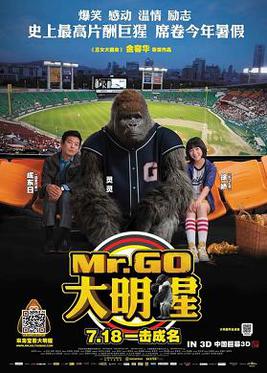
Mr. Go is a 2013 South Korean sport-comedy film written and directed by Kim Yong-hwa based on Huh Young-man's 1984 comic The 7th Team (Korean: 제7구단). About a gorilla who becomes a baseball superstar and his 15-year-old female manager, it stars Xu Jiao and Sung Dong-il. Mr. Go was the first South Korean film to be fully shot in 3D. A co-production between South Korea and China, it was released simultaneously in both countries on July 17 and 18, respectively.
Kim Mi-sook is a South Korean actress.
Lee Byung-hoon is a South Korean television director and producer. Lee is best known for directing period dramas, notably 500 Years of Joseon (1983–1990), Hur Jun (1999) and Dae Jang Geum: Jewel in the Palace (2003).

Shin Su-won is a South Korean film director and screenwriter. Shin wrote and directed Passerby #3 (2010), Pluto (2013) and Madonna (2015). Her short film Circle Line won the Canal+ Prize for Best Short Film at the 2012 Cannes Film Festival.
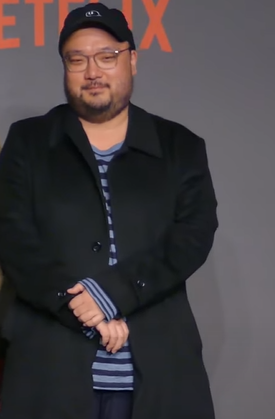
Yim Pil-sung is a South Korean film director and screenwriter. He wrote and directed Antarctic Journal (2005), Hansel and Gretel (2007), and Scarlet Innocence (2014).
Kim Hyun-seok is a South Korean film director and screenwriter. Kim wrote and directed YMCA Baseball Team (2002), When Romance Meets Destiny (2005), Scout (2007), Cyrano Agency (2010), and C'est Si Bon (2015). He also directed 11 A.M. (2013), and wrote If the Sun Rises in the West (1998) and Joint Security Area (2000).
Zhang Lü is a Chinese filmmaker. Zhang was originally a novelist before embarking on a career in cinema. His arthouse films have mostly focused on the disenfranchised, particularly ethnic Koreans living in China; these include Grain in Ear (2006), Desert Dream (2007), Dooman River (2011), Scenery (2013), and Gyeongju (2014).
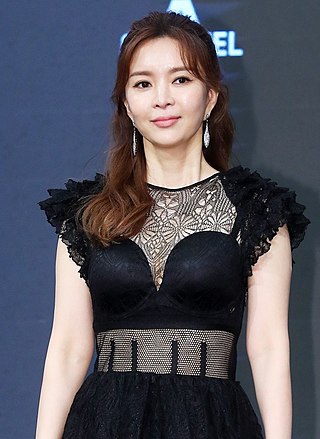
Shin Eun-jung is a South Korean actress. She has played supporting roles in television dramas such as The Legend (2007), East of Eden (2008) and Faith (2012).

Lee Ji-hoon is a South Korean actor. He made his acting debut in the teen series School 2013, and has played supporting roles in family dramas You Are the Best! and Golden Rainbow.
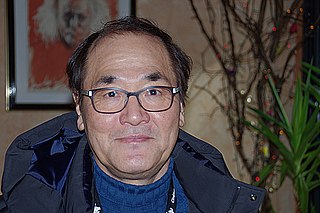
Bae Chang-ho is a South Korean director and screenwriter.
Yoon Sung-hyun is a South Korean film director and screenwriter. Yoon's directorial debut, a graduation project, Bleak Night received rave reviews and won several Best New Director awards at the 48th Grand Bell Awards, 32nd Blue Dragon Film Awards and 12th Busan Film Critics Awards.
Kong Su-chang is a South Korean film director and screenwriter. Kong started as a screenwriter and is behind hits such as White Badge (1992), The Ring Virus (1999) and Tell Me Something (1999). He debuted with the military-themed R-Point (2004), and then The Guard Post in 2008.
Lee Jung-gook is a South Korean film director and screenwriter. Lee's feature debut Song of Resurrection (1990) was banned as its plot deals with the 1980 Gwangju Uprising. He won critical acclaim for his second feature The Story of Two Women (1994) by winning numerous awards at the 32nd Grand Bell Awards, including Best Film, Best New Director and Best New Actress, and Best New Director at the 14th Korean Association of Film Critics Awards in 1994. A Thai version of The Letter was made in 2004, with the same title.
References
- ↑ "LEE Jang-ho". Korean Film Biz Zone. Retrieved 2015-09-29.
- ↑ "Lee Jang-ho, movie director of everlasting youth". KBS Global via Hancinema . 19 July 2006. Retrieved 2015-09-29.
- ↑ Bertolin, Paolo (28 August 2006). "A Conversation With Filmmaker/Festival Director Lee Jang-ho". Koreanfilm.org. Retrieved 2015-09-29.
- ↑ Giammarco, Tom (10 October 2009). "A Good Windy Day (1980)". Seen in Jeonju. Retrieved 2015-09-29.
- ↑ Noh, Jean (12 August 2011). "Lee Jang-ho to head new umbrella Film Korea". Screen Daily . Retrieved 2015-09-29.
- ↑ "Art Cinema as Rebellion. Three Films by Lee Jang-ho". Harvard Film Archive. 13 April 2013. Retrieved 2015-09-29.
- ↑ Tsui, Clarence (10 July 2013). "God's Eye View: Busan Review". The Hollywood Reporter . Retrieved 2015-09-29.
- ↑ Gale, Alastair (7 October 2013). "Lee Jang-ho Film Examines Missionary Work". Hancinema . Retrieved 2015-09-29.
- ↑ Park, Jung-ho (19 March 2014). "After 19-year gap, a heavenly homecoming for Lee Jang-ho". Korea Joongang Daily . Retrieved 2015-09-29.
- ↑ Conran, Pierce (17 May 2014). "Review: Lee Jang-ho's Mysterious and Magnificent THE MAN WITH THREE COFFINS". Modern Korean Cinema. Retrieved 2015-09-29.